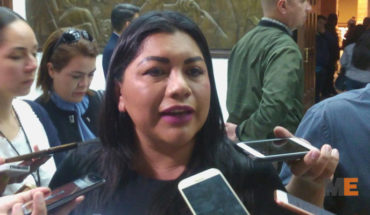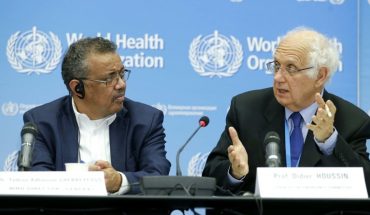When we talk about climate change, we must understand the inseparable diada of energy production and global warming. Since the industrial revolution, humans have required the ability to generate a large amount of energy in order to power industry.
To this day, energy production by transforming heat energy into electrical energy continues to be the most comfortable and, apparently, cost-effective.
The problem with these forms of energy supply has to do with the increase in global temperature as a result of the emission of greenhouse gases (GHG) that are generated as a result of combustion, coal and oil.
Climate change
This crisis presents worrying facts at the international level, such as, for example, that the global temperature has experienced an increase of 1ºC above pre-industrial levels. More worrying seem the forecasts of institutions such as the International Panel on Climate Change (IPCC), which points out that, without new and better actions for the mitigation of this phenomenon, the global temperature could reach 1.5ºC between 2030 and 2052, being able to reach between 3 to 5ºC by the end of this century.
Chile, meanwhile, is not free of the effects of this global threat, as it meets seven of the nine vulnerability criteria set forth by the United Nations Framework Convention on Climate Change (UNFCCC), such as having low-lying coastal areas, areas prone to drought and desertification, arid and semi-arid areas or having urban areas with air pollution problems, to mention some of these criteria.
“Our country will experience an increase in temperatures throughout its territory, in addition, climate projections indicate a decrease in rainfall throughout Chile,” says Andrea Pino, director of the Transdisciplinary Center for Environmental Studies and Sustainable Human Development (CEAM) of the Austral University of Chile (UACh).
The academic points out that the forecasts indicate for the second half of the XXI century greater challenges such as the provision of drinking water, operation of industry, agriculture and electricity generation.
Addressing and rethinking energy production is one of the main actions in GHG emission reductions. Chile is a country in which, in 2016, the energy sector contributed 78% of its total emissions. However, moving from an energy matrix focused on coal and oil, implies decision-making, agreements between different members of society and the implementation of updated public policies.
Decision making and challenges
Facing this reality implies breaking with the phrase “to complex problems, simple answers”, although the heuristic exercise often facilitates decision making, it is not always useful. A problem such as climate change requires thinking in a way that integrates all actors and also breaks with structures of thought and exhausted ways of making decisions, as pointed out by the director of the CEAM of the UACh.
In this regard, interesting experiences such as the “Decarbonization Plan of the Electric Matrix”, an initiative that defined Chile after a discussion between energy generating companies, representatives of civil society and academia, and that contemplates leaving the eight oldest thermoelectric plants in the country in cessation of operations by 2024 and the closure and dismantling of all existing coal-fired power plants by 2040.
This type of commitment on the part of the State of Chile, mean thinking about moving to an electricity matrix, in which Renewable Energies are protagonists. As Andrea Pino points out, “Chile’s energy policy aims to achieve at least a 30% reduction in greenhouse gas emissions intensity by 2030 and, for this, it is proposed to increase energy generation from renewable sources to reach 60% of electricity generation by 2035 and at least 70% by 2050, as indicated in 2015 by the Ministry of Energy.”
Undoubtedly, for the institutions this represents an enormous challenge, even more so in a country like Chile that suffers from a serious problem to update its processes of generation of public policies on this subject.
In this sense, experiences such as those of the Rodulfo Amado Philippi Technical Lyceum (RAP) of Paillaco, in the Los Ríos Region, in which through a work that integrated different units of the UACh and the Community Innovation Laboratory (CoL)ab) of the Massachusetts Institute of Technology (MIT) since 2015, achieved that the Ministry of Education certified the professional technical career in electricity / electronics with specialization in renewable energies, opening the way for more technical high schools to incorporate this specialization in the country.
The experience of the Liceo RAP de Paillaco illuminates a way of thinking that questions the idea that solutions and public policies must come from Santiago or Valparaíso, and that the local can be the origin of a national transformation. In this regard, Professor Pino points out the importance of considering the problems of the communities associated with access to basic services, such as electricity, since what happened in the Paillaco high school did not only favor the students, but also the teachers and neighbors, having a community impact.
After what happened in Ventanas this year 2021, it is important to consider the resistance to the transition. For this reason, as pointed out from the CEAM, the gaze must and must consider all the people involved. That is, in order to avoid possible future conflicts, training and training in new technologies becomes more relevant than ever.
The leap towards renewable energies
Is Chile then ready to take a leap towards renewable energy? This is seen from the number of technical and professional people specialized in this type of technology in the country, or if the State has the updated devices and tools to respond properly, for example, in rural areas of the south of the country.
These elements are undoubtedly not minor challenges and more visible from the provincial perspective, where these problems are daily realities, such as, for example, access to electricity in some rural areas in the mountain region of the Los Ríos Region.
The learning in the Liceo RAP of Paillaco, proposes to advance in the curricular meshes in technical and professional establishments and on the access to the tools and means to implement renewable energies. For this reason, the Regional Government of Los Ríos, through the Bien Club program of the Regional Corporation for Productive Development, in conjunction with the UACh, through the CEAM, has created the “Diploma in Renewable Energies and Local Energy Projects”, which begins on August 11 and has a national scope.
In this regard, the manager of the Regional Corporation for Productive Development of Los Ríos, Silvia Soto, said that “Non-Conventional Renewable Energies (NCRE) are transversal to all productive sectors, and through this project adaptations are proposed to the curricular meshes of establishments of professional technical secondary education, specifically in the economic sectors construction and electricity, oriented to the generation of a specialty in NCRE”.
This “will allow to visualize and specify academic and labor alternatives and because it will deepen in the formulation and valuation of energy projects for decision making and their efficient execution,” he added.
In addition, the executive said she was “very happy that, through this diploma, the 1st made by the UACh with an NCRE approach, is a good club in which tools can be delivered that install new capabilities, especially in those who teach and that also responds to our concern for all the impact generated by climate change.”
This training program aims at professionals and technicians with training in natural, social, economic, engineering and education sciences, with particular emphasis on teachers of technical-professional secondary education establishments, specifically in the construction and electricity sectors, throughout Chile.
The diploma in its four modules seeks to address associative technological solutions in renewable energies, as well as deliver conceptual bases, deepen the formulation and projection of related projects and manage the installation of energy projects.
Chile is a country with enormous potential to transition to a renewable energy system, but taking this leap requires public and private institutions to think outside the box, dare to innovate and above all support a transformation process that involves the education and training of trained people.
Chile’s leap to renewable energies will come from the peripheries of the country, from those places where reality requires them to think new with solutions, that is, the jump to renewable energies will be from the local or it will not be.
Follow us on





